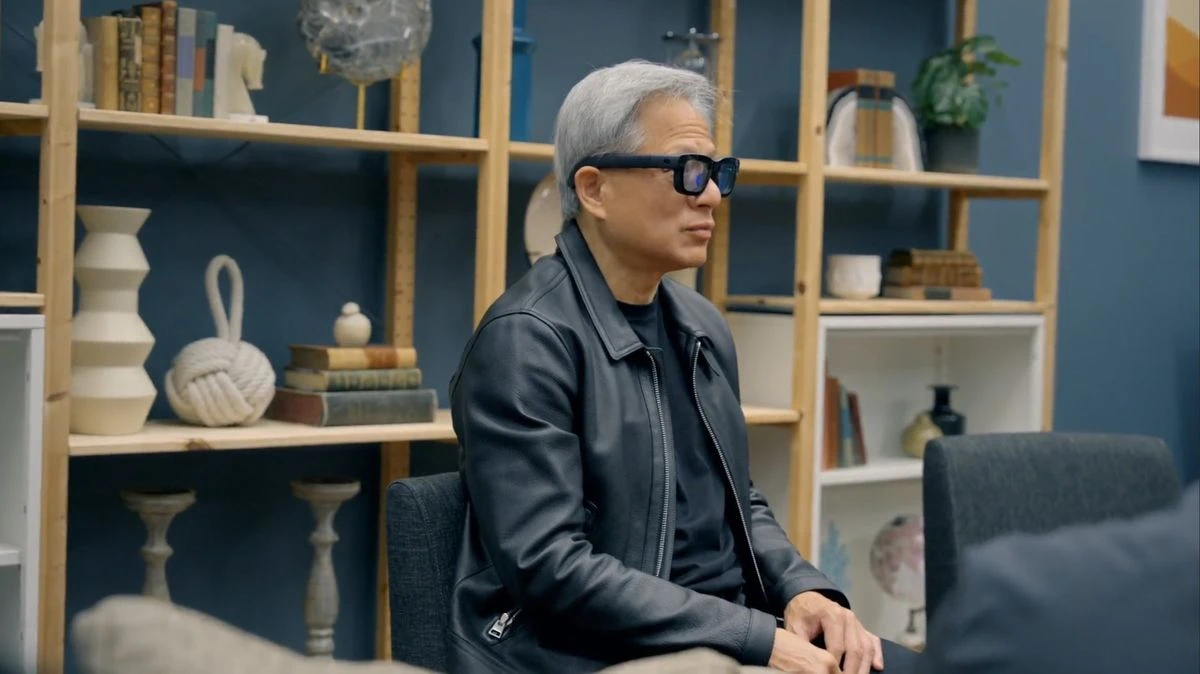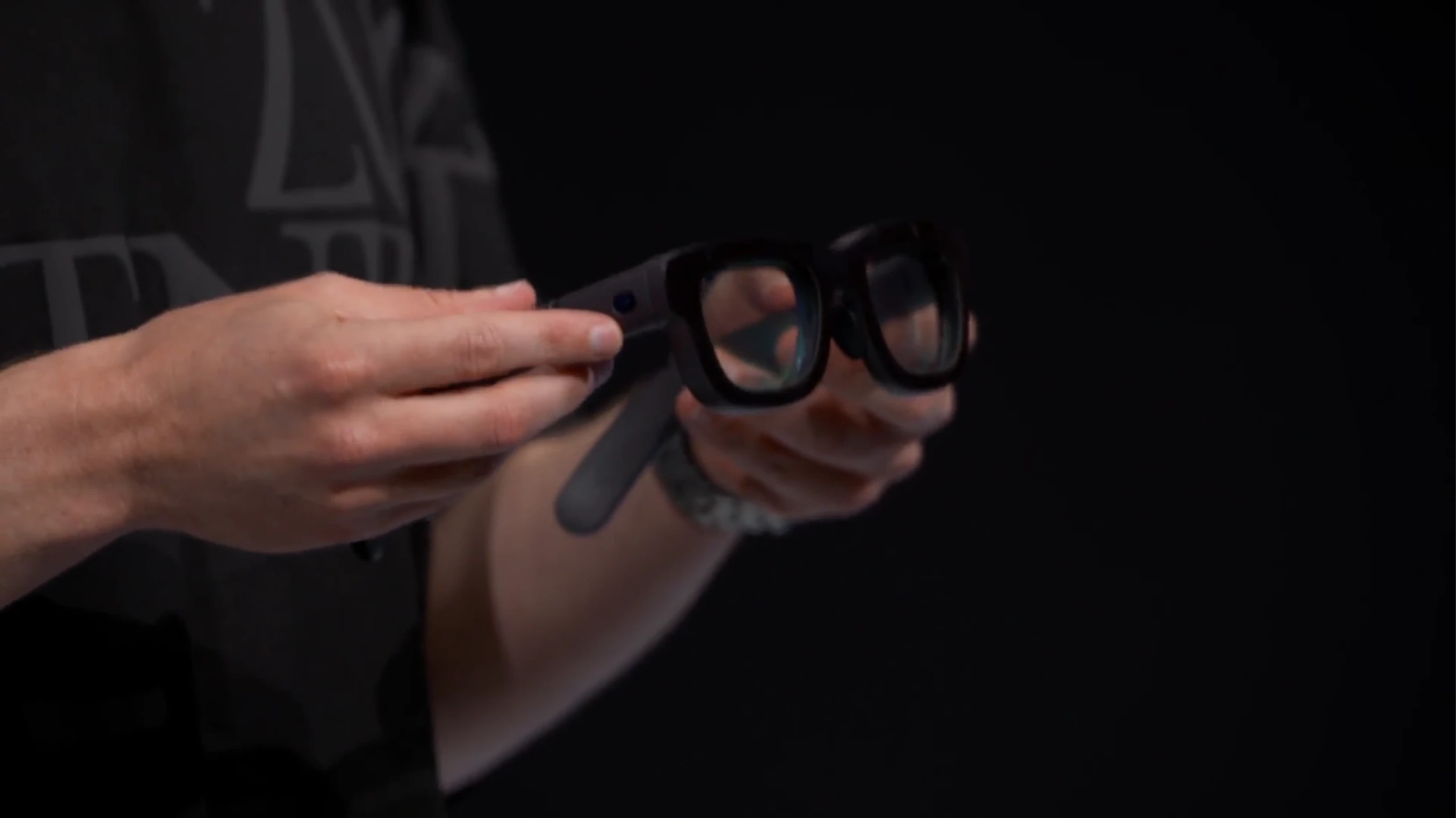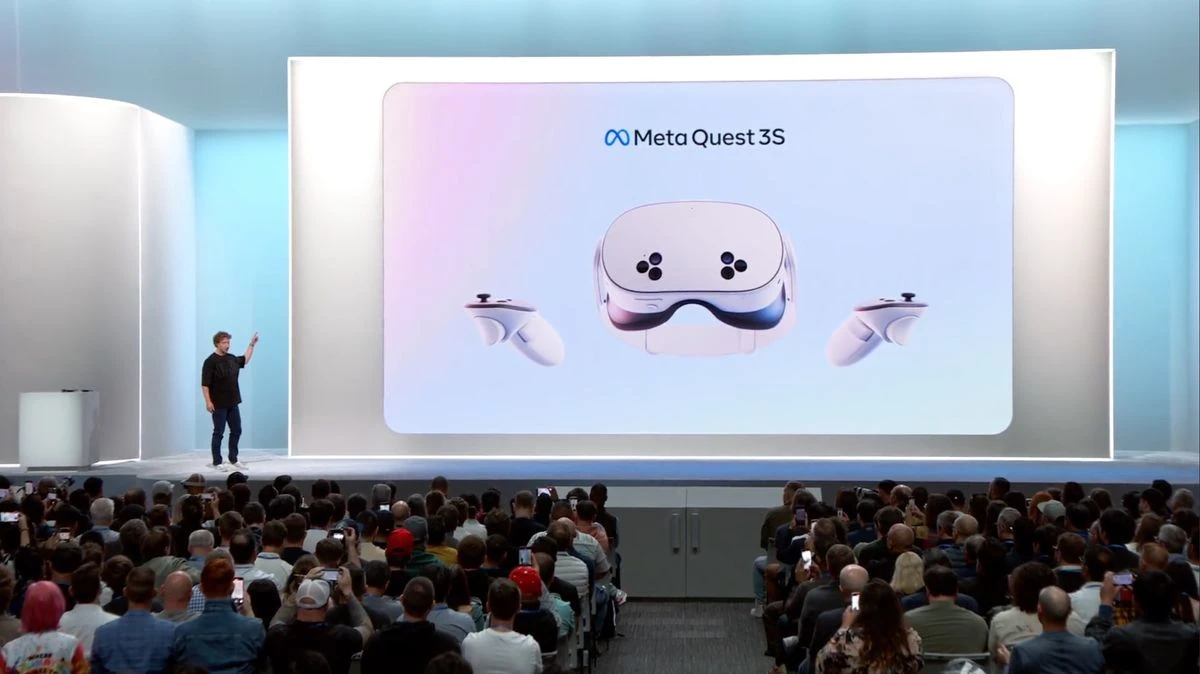Meta announced neural AR glasses powered with AI, and Nvidia CEO, of course, wore a pair.
Mark Zuckerberg just finished his Meta Connect keynote in which he announced a number of new products, including the $300 Quest VR headset. A project called Orion, a pair of AR smart glasses with holographic holograms, made a surprising splash at the show.
Normally, I wouldn't be interested in AR smart glasses. Recently, I found a pair Lenovo smart glasses which let me watch TikTok lying flat in bed. Orion is more than just that.
Orion are holographic intelligent glasses with eye tracking, hand-tracking, AI voice control , anda neuro interface. It's a neural interface, similar to what Elon Musk and Gabe Newell are trying to build. Orion doesn't require an implant in your brain. It works by using the movement of your wrist.
The exact workings of this "wrist based neural interface" are not fully explained. I'm assuming Orion reacts to small signals sent by your wrist via the cable-free wrist display shown during the presentation and translates them into more natural movements in the XR world.
During the show, you can see the XR-world in action.
It sounds odd and I haven't tried it so I can't comment on how well it works. Meta produced plenty of testimonials, including one guy you might recognize. I didn't expect him to show up but it makes sense that he ran when the word 'AI' is mentioned.
Jen-Hsun Huang, founder and CEO of Nvidia, says "This is a huge deal" while wearing Orion.
Huang, an engineer by profession, notes that "the head tracking is excellent, the brightness is great, the colour contrasts are good, and the field of view is excellent."
Then, a series of users said "that's crazy" or something similar.
Orion sounds pretty crazy. It is made of silicon carbide and not glass. It is mounted in a magnesium frame. It uses tiny projectors that are built into the arms of glasses to "shoot" light across the lenses. It's powered with custom silicon and sensors. A small battery is in the arm. It's said that there's a "small ball" to power the whole thing.
The glasses may look a bit dorky and remind me of my regrettable early 2010, but they still sound futuristic. Meta is here to burst the bubble of your expectations: these glasses aren't going to be released anytime soon. This exact model, Orion is never coming out.
Orion is a development kit for internal use. Meta uses it to build the consumer-ready versions, whenever they may arrive. Zuckerberg said that the futuristic glasses will be "ready to become our first consumer full-holographic AR glasses".
Zuckerberg also says that Meta must work to reduce costs. If you remember, Meta's Reality Labs unit that deals with this sort of stuff has spent about a billion dollars a month for the past couple years. This culminated in a loss of $16 billion in 2023.
If you can come up with a number that represents how much it costs to develop and manufacture these glasses, then add a zero. Or two. Or two. They arrived on the stage with a locked briefcase that was chained to someone’s arm.
This type of wearable device may be the future for personal devices, and even replace the phone. This is assuming that this type of wearable is not uncomfortable for long periods or a privacy disaster.
The real kicker is that these wearables are not only futuristic, but also amazing. They're futuristic and often amazing. But I tried to wear the Quest 3 just now to watch Meta Connect and, within minutes, gave up and returned to my PC. It's more convenient.
Crack comfort and I will try your smart glasses.
Best gaming headset : don't ignore in-game audio" data-widget-type="deal" data-render-type="editorial">





Comments